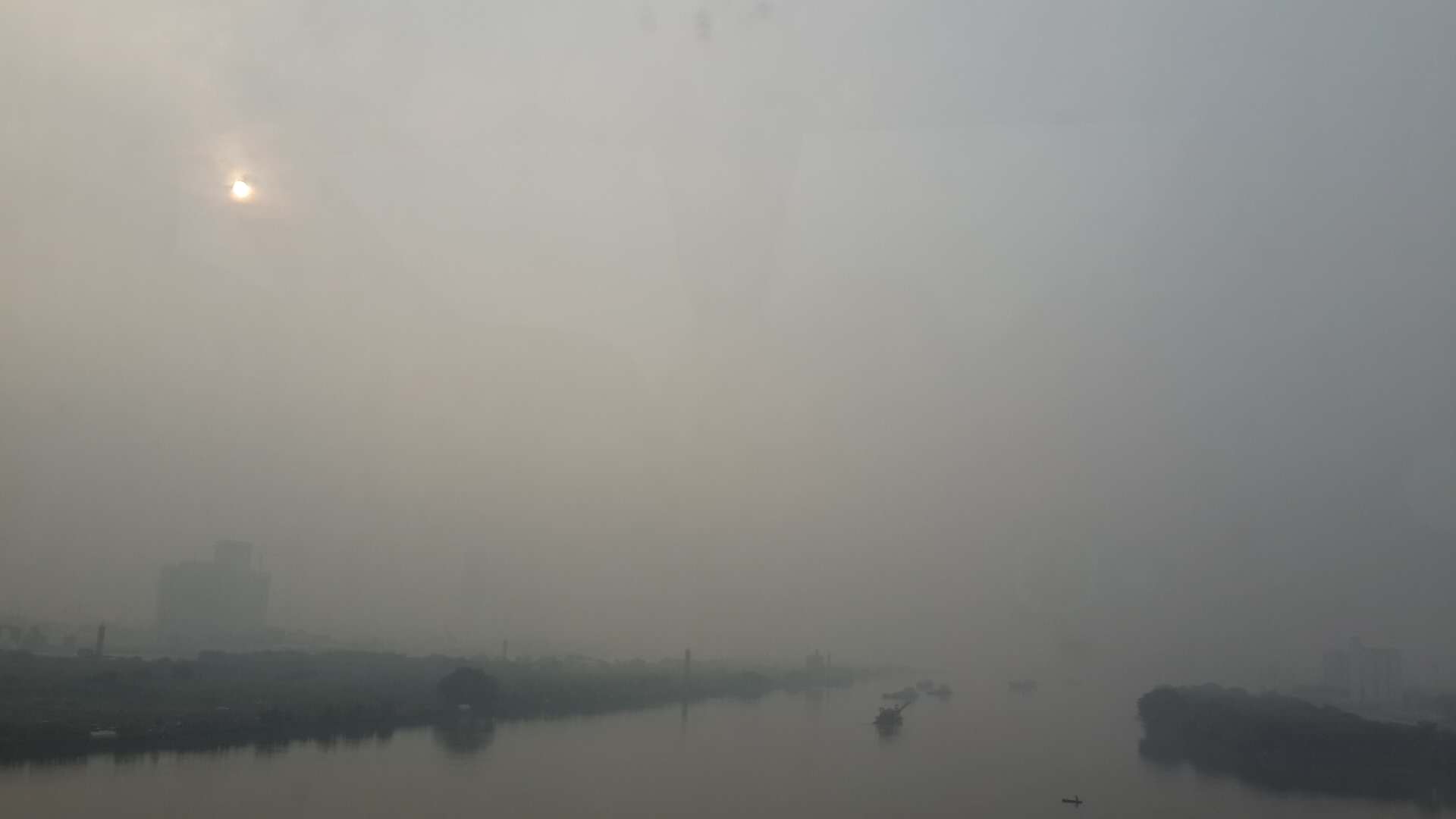
This article was a collaboration between Abby Paras and guest contributor Madeline Cope

Every student at AISG knows about air pollution. Everyone in China knows about air pollution since China is one of the leading countries for air pollution. On the World Health Organization’s list of the 500 most polluted cities by particulate matter, China has 178 on the list. Air pollution has an extremely negative effect on the environment and on humans. Air pollution can cause asthma, brain damage, lung cancer, strokes, and heart disease. In fact, according to the World Health Organization, 3 million people die a year due to air pollution. Air pollution also causes acid rain, eutrophication, and ozone depletion.
In order to collect some raw data, my partner and I made two pollution catchers from paper plates, string, and vaseline. We hung one inside a classroom and one outside near the cafeteria to determine the difference between the air quality inside and the air quality outside. We let them sit for a week and then came back to see the results. The air pollution catcher outside turned yellow with black spots around the outside. It also collected dust and dirt from the air. The air pollution catcher inside stayed clean, and the vaseline stayed clear, showing that there was little to no air pollution inside, largely thanks to the air purifiers.![]()
![]()
In order to get some student opinions, my partner and I sent out a survey to all of AISG, and some

friends living in the US, Russia, other parts of China, Singapore, Dubai, and more. About 160 middle schoolers, high schoolers, and teachers responded to the survey. 72% of them said that they heard about air pollution frequently, and 95% said that they believe the issue needs to be addressed. Around 75% said that they understood the effects of air pollution. Nearly 72% said that the best way to reduce air pollution is to place penalties on industries that violate the air pollution laws and requirements, while 55% said that the best way to fight air pollution on a local level is to find better methods of transportation, such as electric cars or carpooling. We then compared this to the other survey. In the other survey, 81% of people said that they had learned about air pollution in school, and 78% said that burning fossil fuels was the biggest cause of air pollution. 78% also said that the best way to reduce air pollution was to find better methods of transportation, more than the AISG survey. One person suggested using Ecosia, a German search engine that plants one tree for each search performed and donates 80% of their income to different environmental groups.
Every sophomore at AISG has been tasked with creating a ‘Take Action’ Project. This means that they must choose an environmental issue and find a way to take action on it. For this project, my partner, Madeline, and I have chosen to talk about air pollution. Since air pollution is a significant problem in China, we decided to find some ways to prevent and protect against air pollution. While there are many laws and regulations, there are still many things that we students can do on a local level, such as reducing our personal use of fossil fuels, buying local foods, using water-based projects rather than chemical products, and more. This is important since China produces about 7.2 tons of CO2 emissions per capita (per person). If each person makes a little effort to reduce their Carbon emissions and other air pollutants, then the air pollution quantity will significantly decrease. To learn more about air pollution and its causes, effects, and what we can do to help, visit the video we made and comment on what you learned.
To watch the video, click here.
After you’re finished reading and watching, please take a minute to take this post-video survey.